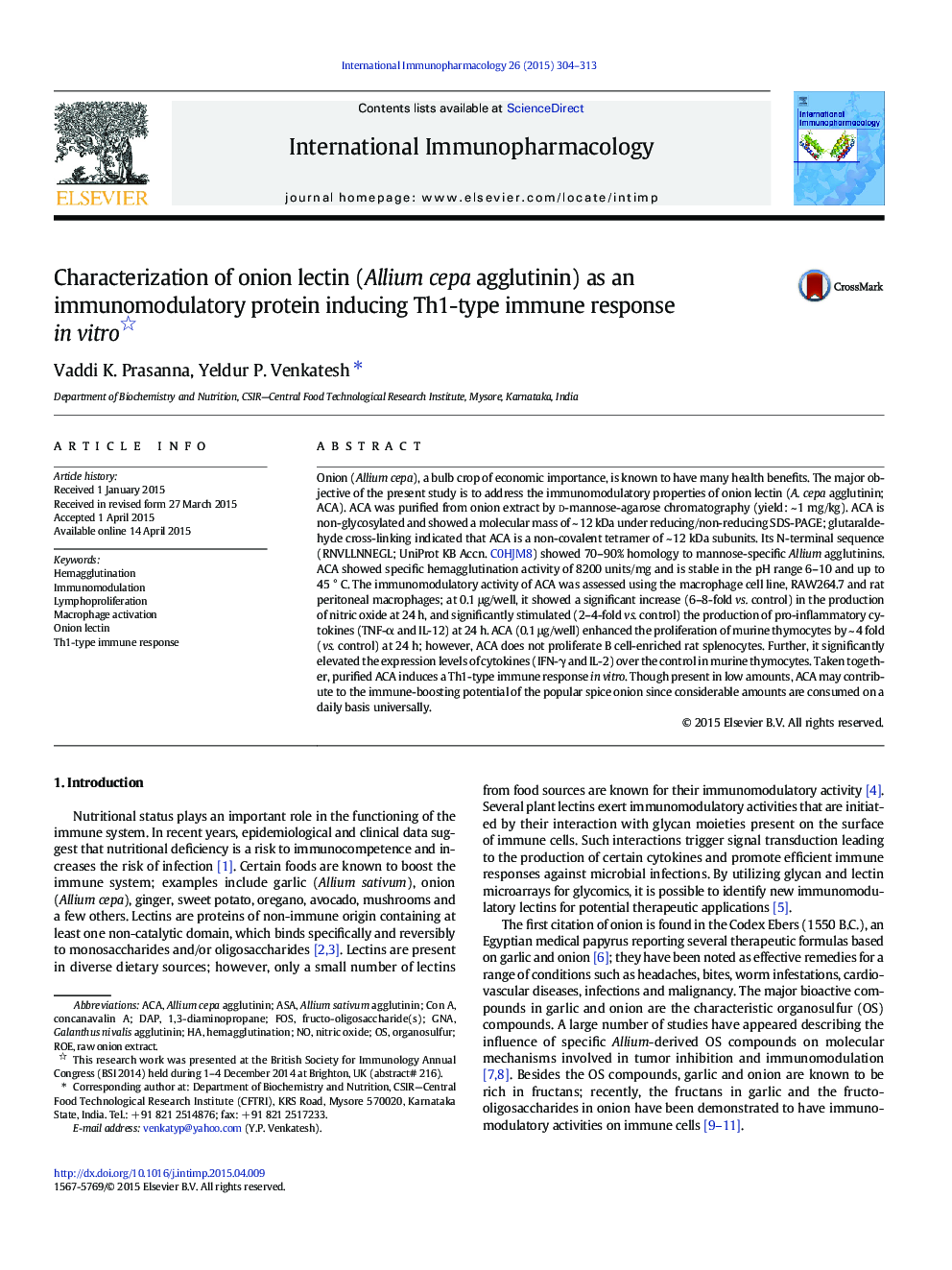| کد مقاله | کد نشریه | سال انتشار | مقاله انگلیسی | نسخه تمام متن |
|---|---|---|---|---|
| 2540526 | 1122596 | 2015 | 10 صفحه PDF | دانلود رایگان |

• Purified Allium cepa agglutinin (ACA) is a non-covalent tetramer of 12 kDa subunits.
• N-terminal sequence (RNVLLNNEGL) of ACA shows 70–90% homology to Allium agglutinins.
• ACA induces proliferation of murine thymocytes by ~ 4-fold compared to control.
• ACA shows 6–8-fold increase in NO release from RAW264.7 cells/peritoneal macrophages.
• ACA induces Th1-type immune response in vitro based on the cytokine release pattern.
Onion (Allium cepa), a bulb crop of economic importance, is known to have many health benefits. The major objective of the present study is to address the immunomodulatory properties of onion lectin (A. cepa agglutinin; ACA). ACA was purified from onion extract by d-mannose-agarose chromatography (yield: ~ 1 mg/kg). ACA is non-glycosylated and showed a molecular mass of ~ 12 kDa under reducing/non-reducing SDS-PAGE; glutaraldehyde cross-linking indicated that ACA is a non-covalent tetramer of ~ 12 kDa subunits. Its N-terminal sequence (RNVLLNNEGL; UniProt KB Accn. C0HJM8) showed 70–90% homology to mannose-specific Allium agglutinins. ACA showed specific hemagglutination activity of 8200 units/mg and is stable in the pH range 6–10 and up to 45 ° C. The immunomodulatory activity of ACA was assessed using the macrophage cell line, RAW264.7 and rat peritoneal macrophages; at 0.1 μg/well, it showed a significant increase (6–8-fold vs. control) in the production of nitric oxide at 24 h, and significantly stimulated (2–4-fold vs. control) the production of pro-inflammatory cytokines (TNF-α and IL-12) at 24 h. ACA (0.1 μg/well) enhanced the proliferation of murine thymocytes by ~ 4 fold (vs. control) at 24 h; however, ACA does not proliferate B cell-enriched rat splenocytes. Further, it significantly elevated the expression levels of cytokines (IFN-γ and IL-2) over the control in murine thymocytes. Taken together, purified ACA induces a Th1-type immune response in vitro. Though present in low amounts, ACA may contribute to the immune-boosting potential of the popular spice onion since considerable amounts are consumed on a daily basis universally.
Figure optionsDownload as PowerPoint slide
Journal: International Immunopharmacology - Volume 26, Issue 2, June 2015, Pages 304–313